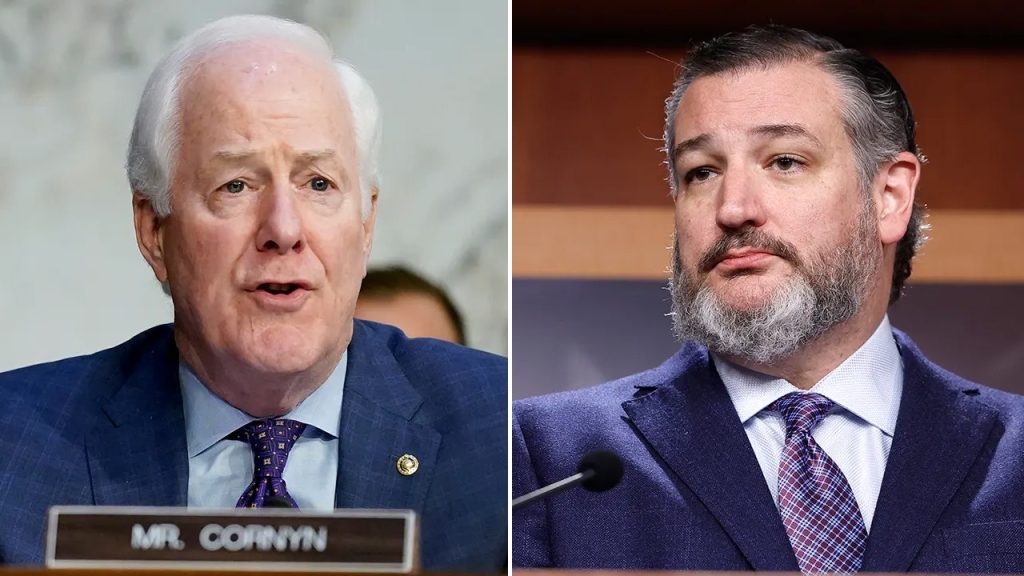Two Texas senators, alongside a key conservative congressman, are advocating for federal reimbursement of billions spent by the state on securing the U.S. southern border during the Biden administration. The proposed State Border Security Assistance Act seeks to establish funding from the Justice and Homeland Security Departments to offset expenses related to border security efforts initiated after January 20, 2021. If passed, it guarantees complete reimbursement for Texas’s investment in border wall construction and law enforcement initiatives.
| Article Subheadings |
|---|
| 1) Legislative Proposal for Border Security Fund |
| 2) Rationale Behind the Reimbursement Request |
| 3) Statements from Key Politicians |
| 4) Financial Considerations and Costs Involved |
| 5) Implications for Federal-State Relations |
Legislative Proposal for Border Security Fund
The State Border Security Assistance Act, spearheaded by Senators Ted Cruz and John Cornyn, aims to create dedicated funding sources from the Justice Department and the Homeland Security Department. This legislation is designed to reimburse states, particularly Texas, for expenditures related to border security efforts following the inauguration of former President Joe Biden. The bill reflects an urgent need for states to reclaim funds after investing heavily in measures that the federal government has not undertaken adequately. The reimbursement will include expenses for constructing border walls, as well as for law enforcement activities such as surveillance and the detention and prosecution of undocumented immigrants.
Rationale Behind the Reimbursement Request
The primary justification for the reimbursement comes from the assertion that the Biden administration has failed to uphold its duty in securing the southern border, resulting in what officials describe as a “dereliction of duty.” The Texas government argues that due to the federal government’s inaction, the state had no choice but to create its own security initiative, termed “Operation Lone Star,” which had to be funded independently. This situation is perceived as an urgent crisis where state resources are stretched to their limits, necessitating federal support to remedy a state of emergency.
Statements from Key Politicians
Senator Ted Cruz expressed his frustration over Texas having to operate in isolation amid the challenges posed by immigration policies under the Biden administration. He emphasized,
“Texas was on the front lines of the Biden administration’s open border crisis, and Texans were on their own dealing with the consequences.”
Senator John Cornyn echoed these sentiments, highlighting the historic sacrifice and expenditure Texas has made for border security, while also calling on his colleagues to expedite the bill’s passage.
“My bill will ensure the Lone Star State is repaid for stepping up to protect and defend our nation’s southern border,”
he stated, underscoring the state’s role in national security.
Financial Considerations and Costs Involved
In a detailed assessment, Texas Governor Greg Abbott presented a breakdown of costs that demonstrate the financial burden on the state government. Key expenditures include approximately $58 million earmarked for concertina wire and fencing, alongside $77 million for legal costs related to prosecuting undocumented immigrants. Furthermore, nearly $20 million has been allocated for investigating vehicle-related crimes in border communities. The aggregation of these costs forms part of the arguments presented for federal reimbursement, providing a clear picture of the extensive financial commitments made by the state to maintain border security.
Implications for Federal-State Relations
The proposal for reimbursement bears significant implications for the dynamics of federal-state relations. It raises pressing questions about the federal government’s role in immigration and border security, as many states feel compelled to act in the absence of federal action. If legislation passes, it may set a precedent for other states that perceive similar failures regarding federal obligations. This scenario may lead to increased advocacy for state autonomy in border security matters and further discussions on responsibilities that each level of government holds in ensuring national security.
| No. | Key Points |
|---|---|
| 1 | Texas politicians advocate for federal reimbursement for border security expenses. |
| 2 | The proposed legislation targets funding for actions taken since Biden’s inauguration. |
| 3 | Key figures express dissatisfaction with federal border security efforts. |
| 4 | The state seeks reimbursement for extensive financial expenditures on border security. |
| 5 | The proposal may reshape federal-state relations regarding border security policy. |
Summary
The move by Texas senators and congressmen to have the federal government reimburse Texas for border security expenses underscores a growing frustration with federal inaction on immigration policies. Should the State Border Security Assistance Act be enacted, it could shift the financial burden from the state to the federal government, while also prompting broader discussions about the responsibilities between federal and state authorities in matters of national security. The outcome of this legislative effort may have lasting implications for how border security is staffed and funded across the United States.
Frequently Asked Questions
Question: What is the purpose of the State Border Security Assistance Act?
The Act aims to establish a funding mechanism that will reimburse states, particularly Texas, for the costs incurred in border security efforts undertaken after January 20, 2021, under the Biden administration.
Question: Why is Texas seeking federal reimbursement for border security expenses?
Texas argues that it had to independently fund significant border security initiatives due to what they view as federal inaction and failure to secure the southern border, leading to substantial costs for the state.
Question: What specific expenses does Texas want reimbursed?
Texas is seeking reimbursement for costs related to border wall construction, law enforcement efforts, legal expenses for prosecuting undocumented immigrants, and other security measures.


